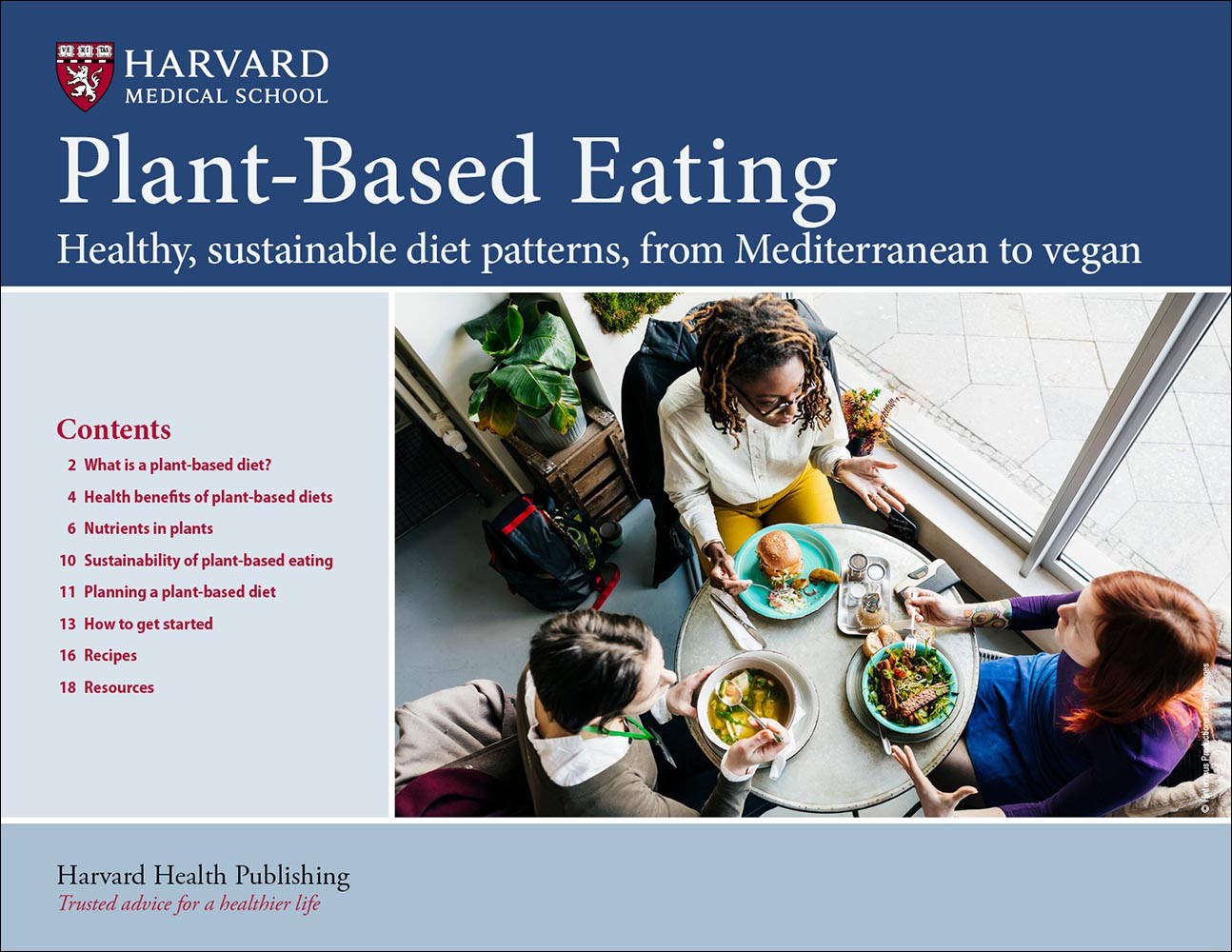Heart Health
Vegetarian and vegan diets may lower cholesterol levels
Research we're watching
- Reviewed by Christopher P. Cannon, MD, Editor in Chief, Harvard Heart Letter; Editorial Advisory Board Member, Harvard Health Publishing

Eating mostly plant-based foods may lower blood levels of harmful fats, new research confirms.
For the study, researchers pooled results from 30 trials (including a total of nearly 2,400 people) published over the past four decades. All participants were randomly assigned to follow either a vegetarian diet (which included dairy and eggs but no meat), a vegan diet (which omitted all animal products), or an omnivorous diet (which included meat and dairy products). The average duration of the diets was 29 weeks. Compared with people eating an omnivorous diet, those following a vegetarian or vegan diet experienced average drops in levels of total cholesterol, LDL cholesterol, and apolipoprotein B of 7%, 10% and 14%, respectively, from levels measured at the start of the study. (Apolipoprotein B is a particle found on LDL as well as other artery-clogging lipoproteins in the blood.)
Plant-forward diets tend to be higher in healthy unsaturated fats but lower in saturated fat, cholesterol, and total fat, which likely explains the findings. The study was published online May 24, 2023, in the European Heart Journal.
Image: © Yagi Studio/Getty Images
About the Author

Julie Corliss, Executive Editor, Harvard Heart Letter
About the Reviewer

Christopher P. Cannon, MD, Editor in Chief, Harvard Heart Letter; Editorial Advisory Board Member, Harvard Health Publishing
Disclaimer:
As a service to our readers, Harvard Health Publishing provides access to our library of archived content. Please note the date of last review or update on all articles.
No content on this site, regardless of date, should ever be used as a substitute for direct medical advice from your doctor or other qualified clinician.
















